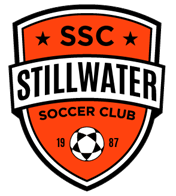Stillwater Soccer Club – Team Manager Expectations & Responsibilities
Team Managers are a vital part of the Stillwater Soccer Club experience. Beyond handling the administrative details that keep a team running smoothly, managers help set the tone for the entire sideline and create an environment where players, parents, and coaches can thrive. A great manager fosters clear and positive communication, encourages team bonding, and helps keep the focus on supporting our players.
Managers are also role models for sideline behavior— promoting respect and reinforcing our club values at every game and event. By keeping the atmosphere constructive and enjoyable, managers help build lasting connections among families, make the coach’s job easier, and create a season that’s memorable for all the right reasons.
- Primary Role
- Serve as the administrative liaison between the Coach, parents, and Club staff.
- Ensure communications remain clear, timely, and positive, supporting the coach by handling non-coaching tasks so they can focus on player development.
- Communication & Coordination
- Distribute practice, game, and tournament schedules using GameChanger or similar tool. Keep information updated in real time.
- Communicate what tournaments the team is playing in with the club registrar well in advance of the tournament registration deadline. Let the registrar know what division the team would like to request for the tournament (Gold, Silver, Bronze).
- Relay parent questions or concerns to the Coach or Club Representative for resolution.
- Gather and communicate coach blackout dates or schedule restrictions to the league scheduler and/or tournament director.
- Documentation & Compliance
- Maintain all essential team paperwork: player registration, medical releases, birth certificates, contact lists, rosters, and player cards. The club registrar will provide you with this documentation.
- Present required documents at games and tournaments when needed. The “game card” must be printed in advance of league games.
- Tournament Administration
- After each tournament, send a list of participating players to the club registrar so they can be billed.
- Do not collect or hold money directly—billing will be handled by the club.
- Communicate with the club registrar promptly to ensure accurate player accounts.
- Scheduling & GameChanger Management
- Load all league game schedules into GameChanger (or a similar tool)
- Load tournament schedules into GameChanger as soon as they are available.
- Update GameChanger with any changes to times, fields, or opponents.
- Coordinate with the coach and league/tournament officials on any needed reschedules.
- Update League scoring system post-game. Instructions are usually provided on the gamecard for OPC or OPL games.
- Game Day & Logistics Support
- Ensure players have the correct uniforms, equipment, and are ready for games.
- Organize sideline setup and bench area needs (tents, water, medical kit, etc.). You do not have to do this yourself—enlist help from other adults and manage the process.
- Assist at tournaments with player check-in, travel logistics, and communication with families.
- Team Culture & Volunteer Engagement
- Promote a positive, organized, and inclusive team atmosphere.
- Coordinate parent volunteers for snacks, carpooling, end-of-season events, or other team needs.
- Support the coach’s vision and help keep parents informed and engaged.
- Boundaries & Support
- Avoid involvement in coaching decisions such as player selection, playing time, or tactics—these are the coach’s responsibility.
- Act as a buffer between the coach and parents when needed, helping maintain a respectful and professional environment.
- Lean on club leadership for help with conflicts, scheduling issues, or compliance questions.
- Personal Attributes & Time Commitment
- Be organized, dependable, and comfortable managing communications.
- Remain approachable and responsive to both the coach and team families.
- Expect to spend 1–2 hours per week on manager duties, with occasional peaks during tournaments or at the start of seasons.
The Club Registrar, President, or another team manager would be happy to walk you through these steps. Please don’t hesitate to reach out.











